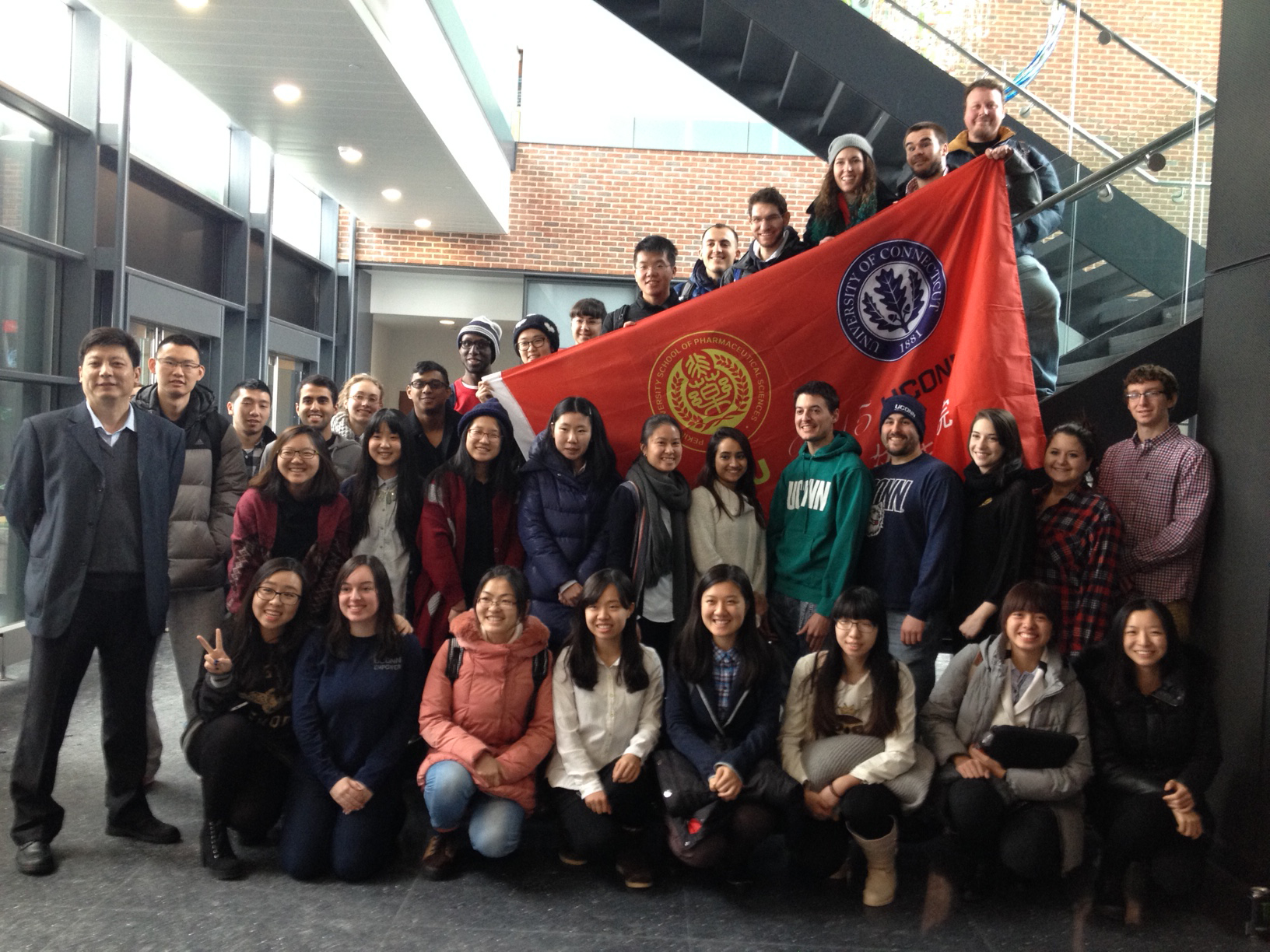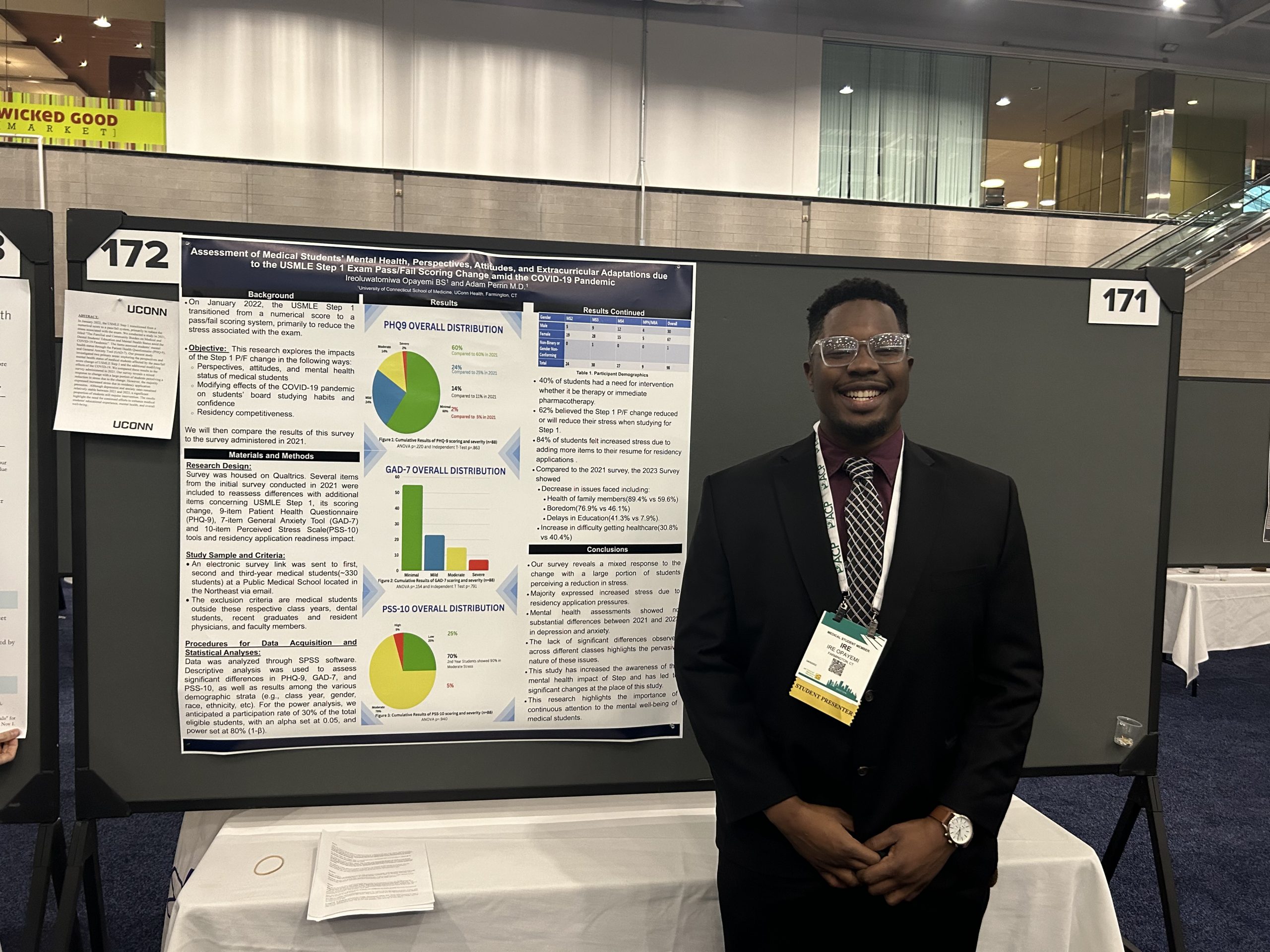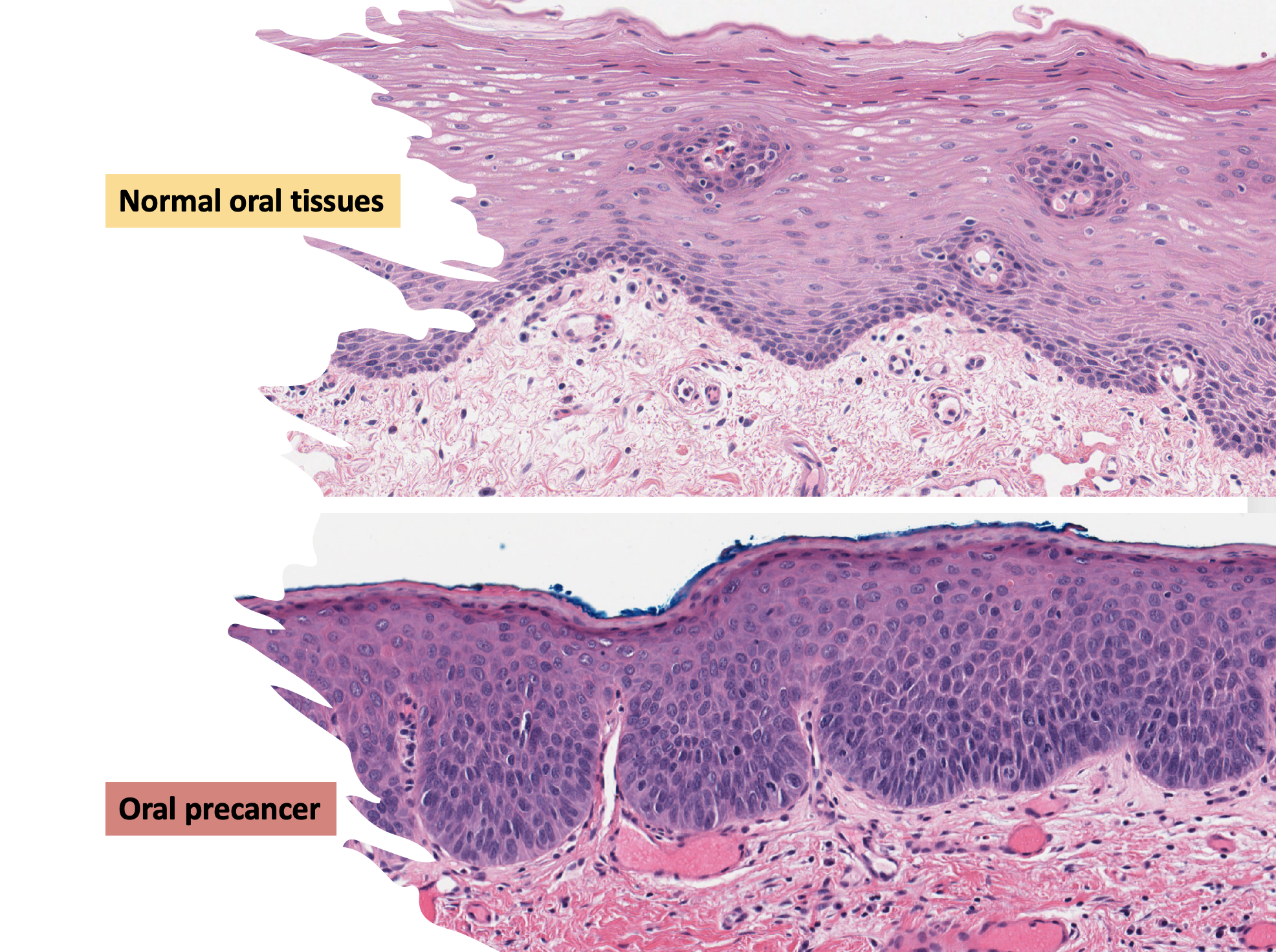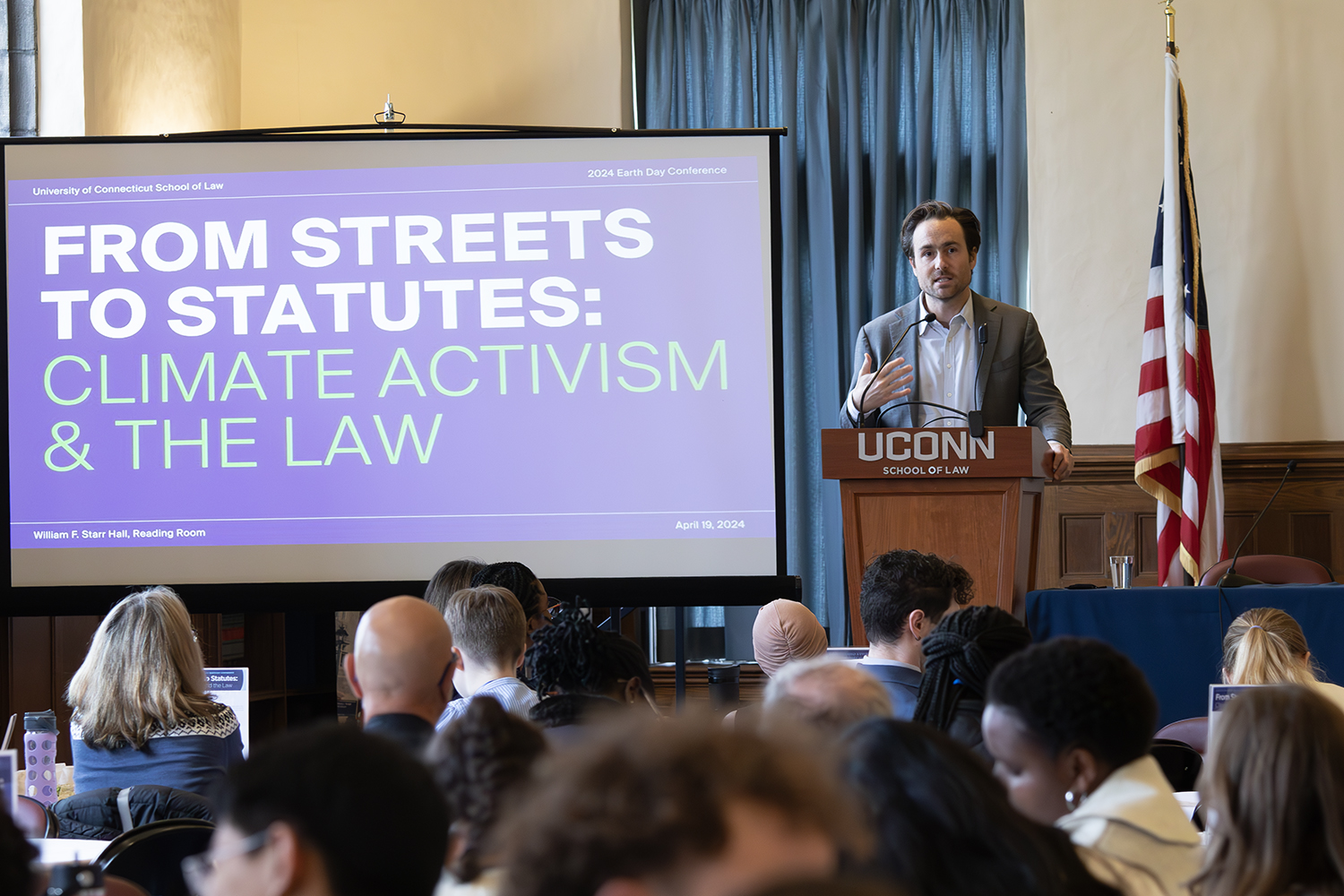It was just a year ago when UConn Dean of Pharmacy Jim Halpert boarded a plane to China, a move that kicked off a year of intensified global thinking at the school. While students were headed home for winter break, Halpert spent two weeks in China and Taiwan developing collaborations with pharmacy schools. After winning a Chinese International Academic Master Award sponsored by Shanghai Jiao Tong University, Halpert was invited to learn more about the research at various Chinese universities. With the goal of solidifying more exchange programs, the dean spoke to students, faculty, and administrators about educational opportunities and some of the research that pharmacy students and faculty are conducting at the University of Connecticut.
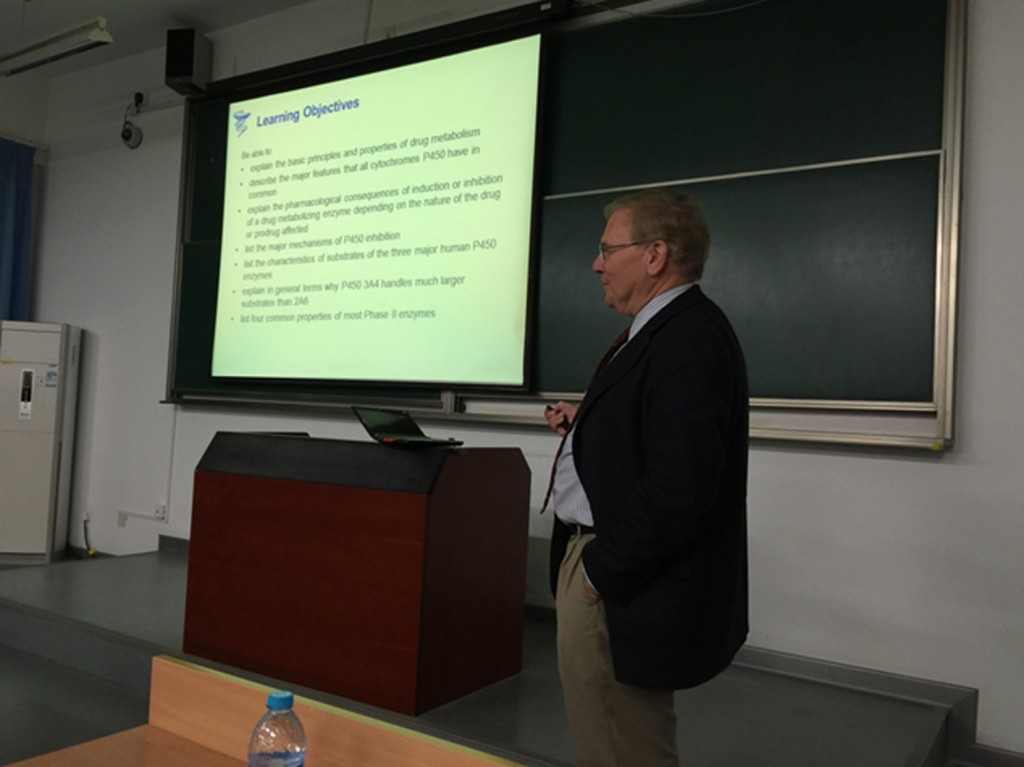
With each day bringing about new discoveries, Halpert was able to visit five pharmacy schools and met a number of students hoping to further expand their pharmaceutical research. After spending a few fruitful days with his hosts at Shanghai Jiao Tong University, Halpert visited China Pharmaceutical University, Wenzhou Medical University, Peking University, and Taipei Medical University.
Halpert was particularly fascinated by the magnitude of China Pharmaceutical University (CPU). CPU is comprised of 10 schools, all operated by separate deans, with one school dedicated to research alone. Many of the students exhibited a real passion for science that reminded Halpert of his own student days. “Seeing students excited to go to the lab each day for the pure sake of scientific curiosity is very gratifying,” he said. Magnitude was also evident in a different way at Wenzhou Medical University, where there are over 3,000 beds to accommodate patients along with high-tech systems that allow physicians and pharmacists to better care for the high volume of patients. Halpert’s last stop in mainland China was at Peking University, one of the first pharmacy schools to develop a relationship with UConn. Peking University continues to host UConn pharmacy students participating in UConn’s Traditional Chinese Medicine Study Abroad Program. With pharmacy schools across the country vying for a top ranking, UConn looks to differentiate itself from the crowd. Halpert asks, “What can we do that other schools aren’t?” in order to further advance relationships across the globe.
While UConn pharmacy students have been studying in China for several years, in February 2015, the UConn School of Pharmacy hosted students from Peking University who explored research and practice here. Associate Clinical Professor Fei Wang coordinated the visit and assisted Peking students during their stay. She praised the program for its ability to enhance students’ educational experience. “It is a unique program,” she said.
Peking University officials proposed that students from their university visit UConn and work with Dr. Diane Burgess, a Board of Trustees Distinguished Professor of Pharmaceutics. Wang began working on an itinerary that included trips to hospitals as well as major U.S. cities. Students were asked to choose elective and core classes before the start of their trip and were paired with UConn students who provided support throughout their stay.
Peking student, Sun Ruoxuan, recalled her first impressions of the university. “I kind of knew what America looked like, but I had no idea what the hospitals and universities were like,” she said. “I wanted a feel for American universities and hospitals as a student, not as a tourist.”
For two weeks, Ruoxuan and other Peking students were challenged both in the classroom and in the lab. They attended a research conference led by UConn graduate students and visited labs where they learned more about professors’ work. Students went to lectures alongside their UConn peers, and found little trouble understanding the material despite a slight language barrier.
Students also had the opportunity to visit UConn’s partner sites, Yale-New Haven Hospital and Hartford Hospital where they were both on the floor and behind the scenes. At Hartford, Wang said, students talked to preceptors and learned more about practices from lecture-based sessions. At Yale, they were more active and learned through a hands-on approach.
When the students weren’t immersed in their studies, they visited MIT, toured the Harriet Beecher Stowe house, and learned more about Connecticut’s legislative system at the State House. They even caught a show with the Blue Man Group and attended a Broadway show while in New York City.
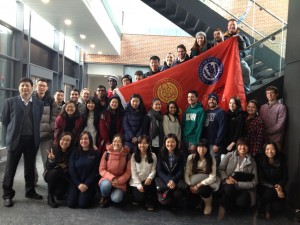
Despite the hustle and bustle, students were able to reflect on their time spent in the states. Chen Li found that Peking University does not have a Pharm.D. program like UConn and that research is more focused at UConn than in China. “The research disciplines in UConn are pharmacology, pharmaceutics and medicinal chemistry, while PKU pharmacy school has more disciplines, such as natural medicines, bio-inorganic chemistry, pharmaceutical analysis, pharmacy administration and clinical pharmacy,” she said.
Ruoxuan said doctors and pharmacists do not work as closely together in China as she has seen them do in the United States. “In China, we haven’t built the system to let doctors and pharmacists work together, providing the best medical service to the patients,” she said. “The Chinese doctors play two roles, both the doctor and the pharmacist. So you can see in hospitals we don’t have positions for pharmacists, and in a pharmacy school, like ours, we don’t have a Pharm.D. program.”
On their last night in the states, Dean Halpert and his wife hosted a dinner at their home for the visiting students. Wang recalled the evening as a special occasion for the Peking students. “This helped them to capture the experience at the end of their visit,” she said. Another unique feature was snow removal lessons from the Dean. “I was impressed how quickly the students got the hang of using a snow blower,” Halpert said.
A critical element to the success of the visit was the great support provided by UConn students who served as hosts, mentors, and occasionally interpreters to their new Peking friends.
“I was very happy to see our students step up and help. They were there for our guests while they were on campus,” Wang said. “Many students even volunteered to go on the Boston and New York trip. They were very helpful.”
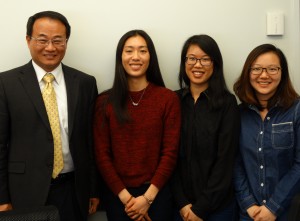
Experiences such as these have encouraged Halpert to further expand the school’s global ties. In April, the school hosted Dr. Jackson Chieh-Hsi Wu, dean of the College of Pharmacy at China Medical University in Taichung, Taiwan. During his visit Wu met with various school faculty and administrators to investigate potential areas of synergy. He also met with students Hui (Maya) Chang, Annie King, and Athena Tao who will each complete an Advanced Pharmacy Practice Experience rotation at Wang Fang Hospital in Taiwan during the 2015-2016 academic year. These rotations are a direct benefit of Halpert’s earlier trip.
This meeting led to the presidents of the two universities signing a Memorandum of Understanding for continued cooperation and student exchange. As a result, select students will attend a summer program, “Pharmacy International Leadership Summer Seminar” here at UConn. The program will also be open to students from Universitas 21 institutions. Associate Dean for Academics Lauren Schlesselman, who is leading global education initiatives for the school, developed the curriculum.
Overall, Halpert is happy with the outcomes of his trip and knows there is great potential for the School of Pharmacy to develop its global relationships. “UConn enjoys strong representation in China and Taiwan, and expanding these further is an important goal for our school,” he said. Ultimately, he hopes that UConn can continue to develop a personal relationship with these universities as a valuable learning experience which can foster growth and development for both the university and the school.
